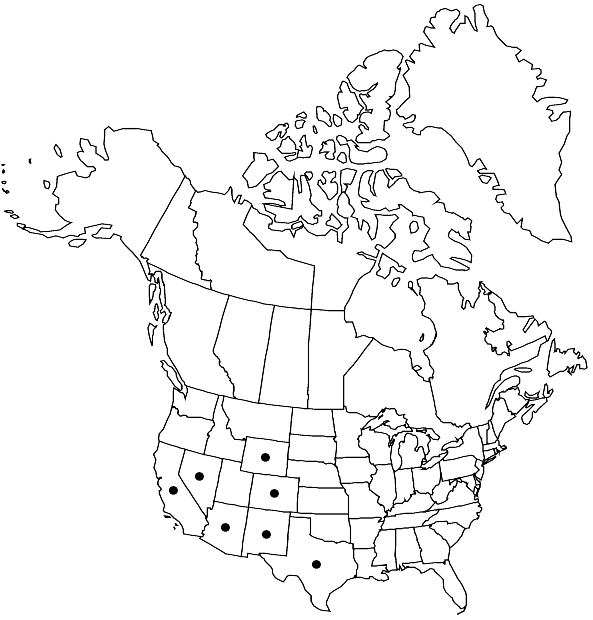Tortula guepinii
in H. G. A. Engler and K. Prantl, Nat. Pflanzenfam. 214[I,3]: 430. 1902,.
Leaves ovate to short-elliptic, apex broadly acute, awned, margins recurved in mid 4/5 of leaf, usually bordered distally with 2–4 rows of smooth or less papillose, somewhat thicker-walled cells; costa excurrent in the awn, lacking an adaxial pad of cells, distally narrow, 2–4 cells across the convex adaxial surface; distal laminal cells hexagonal, 16–19 µm wide, 1: 1, papillose with 4–6 1-fid to 2-fid papillae. Sexual condition autoicous. Sporophytes exerted. Seta 0.7–0.8 cm. Capsule stegocarpic, not systylius, cylindric, erect and nearly straight, urn 1.2–1.4 mm; peristome ca. 500 µm, of 16 teeth, weakly twisted, divided to below the middle, basal membrane to 75 µm high; operculum ca. 0.8 mm. Spores 13–18 µm, spheric, papillose.
Phenology: Capsules mature spring.
Habitat: Soil
Elevation: low elevations
Distribution

Ariz., Calif., Colo., Nev., N.Mex., Tex., Wyo., Mexico (Baja California), sw Europe
Discussion
Tortula guepinii resembles T. hoppeana of montane and subarctic distribution in North America and elsewhere, but it is smaller, with leaves less than 2 mm, and cells of the leaf margin are distinctly less papillose at the apex. Tortula plinthobia of the southeastern and southwestern United States has distal laminal cells only 10–13 µm wide.
Selected References
None.
Lower Taxa
"um" is not declared as a valid unit of measurement for this property.